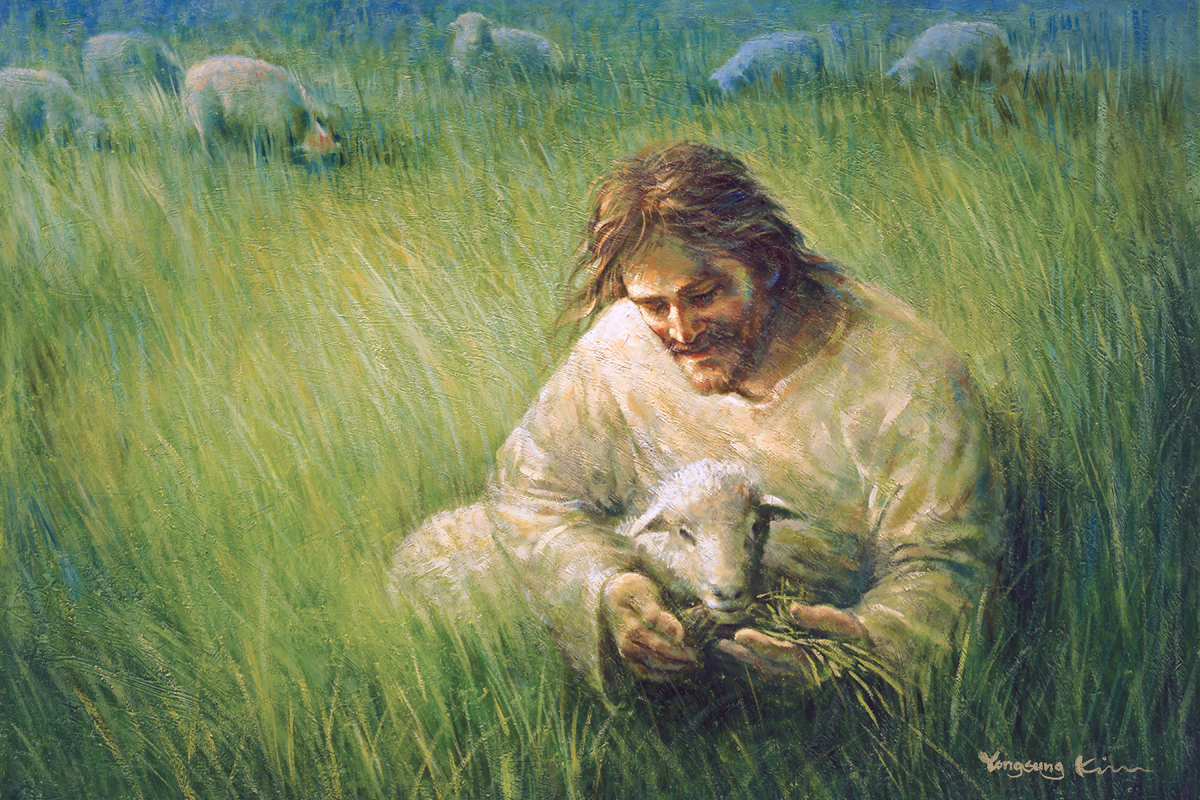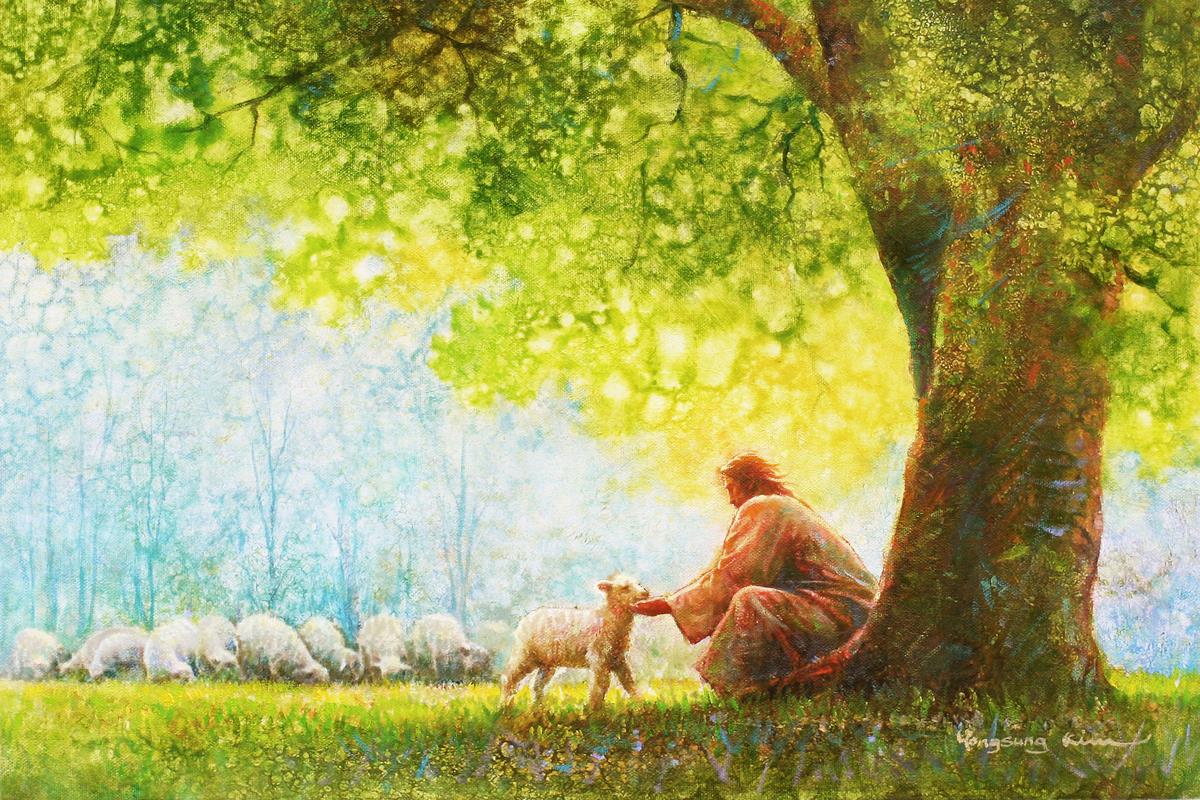
This entire book is fascinating and I thought this chapter was particularly interesting. I wish I could type up the whole thing. You’ll just have to go read it for yourself though.
“Only those intimately acquainted with sheep and their habits understand the significance of a “cast” sheep or a “cast down” sheep.
This is an old English shepherd’s term for a sheep that has turned over on its back and cannot get up again by itself.
A cast sheep is a very pathetic sight. Lying on it’s back, it’s feet in the air, it flays away frantically struggling to stand up, without success. Sometimes it will bleat for a little help, but generally it lies there lashing about in frightened frustration.
If the owner does not arrive on the scene within a reasonably short time, the sheep will die. This is but another reason why it is so essential for a careful shepherd to look over his flock every day, counting them to see that all are able to be up and on their feet. If one or two are missing, often the first thought to flash into his mind is, “One of my sheep is cast somewhere. I must go in search and set it on its feet again.”
“During my own years as a keeper of sheep, perhaps some of the most poignant memories are wrapped around the commingled anxiety of keeping a count of my flock and repeatedly saving and restoring cast sheep. It is not easy to convey on paper the sense of this ever-present danger. Often I would go out early and merely cast my eye across the sky. If I saw the black-winged buzzards circling overhead in their long slow spirals, anxiety would grip me. Leaving everything else, I would immediately go out into the rough wild pastures and count the flock to make sure every one was well and fit and able to be on its feet.”
“Many people have the idea that when a child of God falls, when he is frustrated and helpless in a spiritual dilemma, God becomes disgusted, fed-up, and even furious with him. This is simply not so.
One of the great revelations of the heart of God given to us by Christ is that of Himself as our Shepherd. He has the same identical sensations of anxiety, concern, and compassion for cast men and women as I had for cast sheep. This is precisely why He looked on people with such pathos and compassion. It explains His magnanimous dealing with down-and-out individuals for whom even human society had no use. It reveals why He wept over those who spurned his affection. It discloses the depth of His understanding of undone people of whom He came eagerly and quickly, ready to help, to save, to restore.
When I read the life story of Jesus Christ and examine carefully His conduct in coping with human need, I see Him again and again as the Good Shepherd picking up cast sheep. The tenderness, the love, the patience that He used to restore Peter’s soul after the terrible tragedy of his temptations is a classic picture of the Christ coming to restore one of His own.
And so He comes quietly, gently, reassuringly to me no matter when or where or how I may be cast down.”
(W. Phillip Keller, A Shepherd Looks at Psalm 23, pg. 70-73, 75)
-

“Restoreth My Soul” by @yongsungkimart
Here is a quote from another source that gives a different angle of understanding for this part of Psalm 23…
“According to Hebrew Scholars, the restoration of the ‘soul’ in Psalm 23:3 means the rekindling, [strengthening and]…quickening of the exhausted spirit…
It is interesting to note that in a flock each sheep has a time of quietness and aloneness with his shepherd every day. Early in the morning the sheep would form a grazing line and keep the same position throughout the day. At some time along the way each sheep left the grazing line and went to the shepherd. The shepherd received the sheep with outstretched arms speaking kindly to it. The sheep would rub against the shepherd’s leg, or if the sheep were seated, rub its cheek against his face. Meanwhile the shepherd would gently pat the sheep, rubbing its nose and ears and scratching its chin. After a brief period of this intimate fellowship together, the sheep returned to its place in the grazing line.
What a blessing it is to be able to leave the cares of life for a brief period and spend time in the outstretched arms of the Shepherd, rubbing as it were, our cheek against His face in intimate fellowship through prayer!… He restores [us] when [we’re] cast down.” (Elizabeth George)

